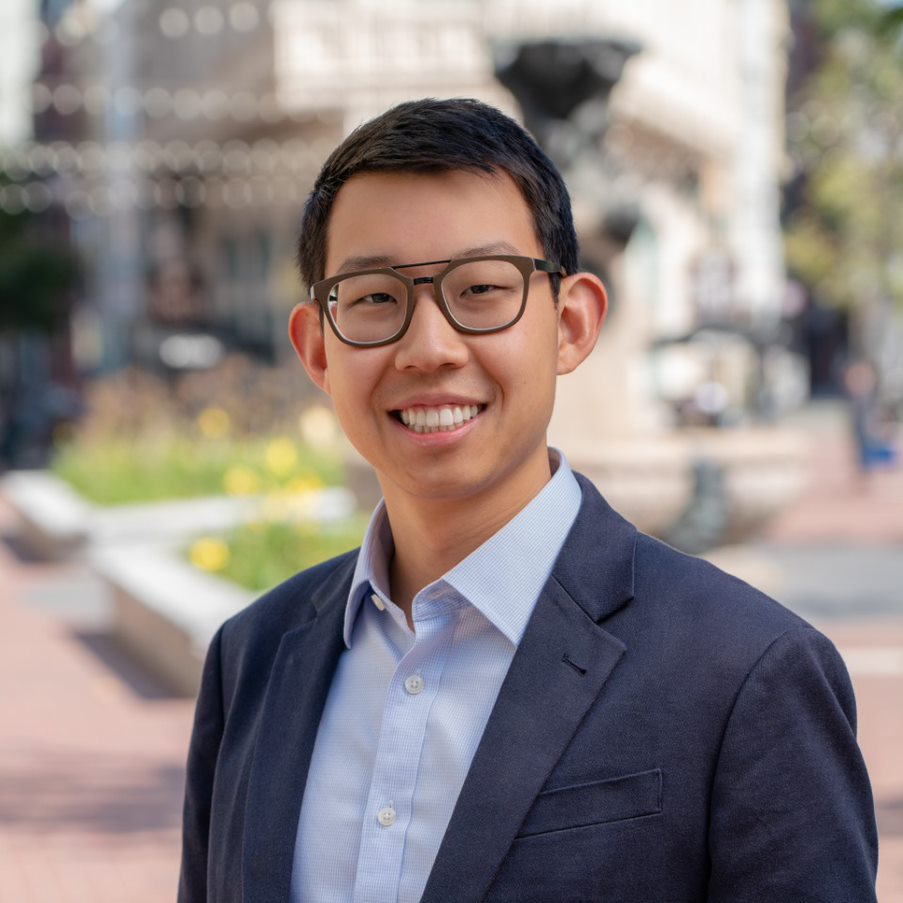
Complete Freedom and Flexibility: A Look Back on the ARPA-E Summer Scholars Program with David Zhang
With spring break just around the corner, ARPA-E is getting ready to welcome a new crop of energy enthusiasts to its annual Summer Scholars program. We reached out to a former Summer Scholar, David Zhang, to learn a little about his background, his experience at ARPA-E, and how it helped change the course of his career.
Tell us a little about yourself! How did you become involved in the energy world?
Growing up in the energy capital of the world – Houston, Texas – I’ve always been surrounded by the energy industry. I interned abroad during my sophomore year of college, designing combustion models for power plant boilers in a highly polluted environment. After experiencing first-hand the effects of living in that type of environment, I made it my career goal to reduce greenhouse gas emissions through novel, clean energy technologies. Since that internship I’ve worked on high-efficiency natural gas power plants, large-scale solar and storage programs, and sustainable, resilient microgrids.
How did you find out about ARPA-E? What made you apply to be a Summer Scholar?
I first learned about ARPA-E as an undergraduate when I was looking to pursue a career in energy technology research and development. I learned about the Technology-to-Market Summer Scholar program through a fellow energy enthusiast while attending graduate school at UC Berkeley. I was excited by the prospect of aiding in the development of cutting-edge, high-risk energy technologies, so I applied for the program.
What was your first impression of the ARPA-E culture?
I was expecting a bureaucratic management structure since this was my first foray in the public sector. I was pleasantly surprised, however, by the open, collaborative culture at ARPA-E. I found ARPA-E’s management structure to be very horizontal, which gave me the opportunity to openly interact with Program Directors, Technology-to-Market Directors, and even the Deputy Director for Technology.
What kind of work did you do during your time here?
I initially researched the white space for direct current (DC) transmission and distribution to determine if there was a technology gap that ARPA-E could fill. This study involved surveys to academia and industry, on-site interviews with stakeholders, and extensive literature review. The results of this research culminated in the development of the Building Reliable Electronics to Achieve Kilovolt Effective Ratings Safely (BREAKERS) program. The DC circuit breaker projects funded through this program will enable DC distribution for emerging energy markets, including renewables and microgrids.
What was it like working with the other Summer Scholars?
Part of the reason I enjoyed my experience so much was the interaction with other Summer Scholars and ARPA-E Fellows, both in a professional setting and outside the office. Our daily lunch conversations covered topics ranging from high efficiency storage materials to the best new restaurants in town. Each person brought a unique background, but everyone shared the same passion for energy.
How did you enjoy your time in Washington?
Washington D.C. was one of my favorite cities to live in thanks to its amazing food culture, convenient transportation, world-class museums, and close-knit community. The experience of biking along the National Mall on my way to work each morning was the best commute I’ve ever had – and likely will ever have.
What was the most rewarding part of your experience?
The fact that I was given the opportunity to help develop a new ARPA-E program, in my two months there, was the highlight of my experience. I was given complete freedom and flexibility in the research that I conducted and the program pitch that I developed. At the same time I was heavily supported by an amazing technical team, including my Technology-to-Market Advisor, Danny Cunningham, and Program Director, Isik Kizilyalli.
How did your time at ARPA-E prepare you for the next part of your journey?
ARPA-E taught me that the energy world consists of much more than just the power generation sector. After ARPA-E I became an energy consultant in the San Francisco Bay Area, where I manage the development and deployment of integrated demand side management products and programs. My work investigates how the interplay between distributed power generation and demand response can bring energy resiliency through sustainable power systems.
How have you remained connected with ARPA-E since your time as a Summer Scholar came to an end?
After I left ARPA-E I was excited to hear that the program I helped develop, BREAKERS, had successfully launched its funding opportunity. I was brought in as a reviewer for the BREAKERS program and had the privilege of evaluating proposal applications and participating in an in-person review workshop. I continue to follow the development of BREAKERS and make sure to catch-up with my former colleagues whenever we happen to be in the same city.
What piece of advice would you give to the next batch of Summer Scholars?
Two pieces of advice that I highly recommend are to be vocal about the technology or programs that you want to work on and to take the self-initiative to contribute to or design a new program. ARPA-E’s culture is highly independent and merit-driven, so the amount of effort that you put in will show and be credited. At the same time, there’s a wealth of knowledge to leverage and everyone is open to providing support and structure when needed.
